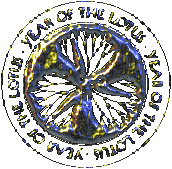
Company of Ordinary People
Leader of the Bannin of the House of Yizhi
Description

Company of Ordinary People
Leader of the Bannin of the House of Yizhi
Description

"If your conscience bugs you about something but your heart craves it, give it a shot. If the voice grows quiet, your heart was in the right place. If the voice in your head gets louder and more persistent, your heart was wrong and it’s time to atone. Don’t be the sort so proud someone has to make you atone. Such a waste of good bullets."
History

Significant Other

Rikki

